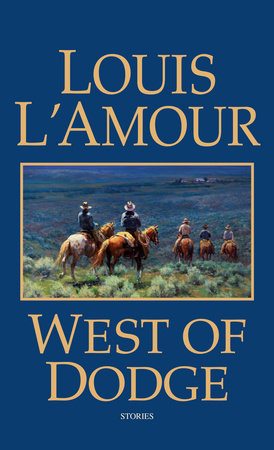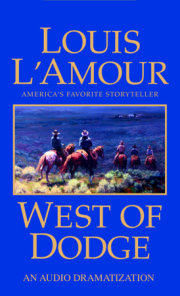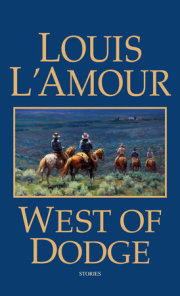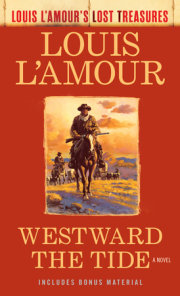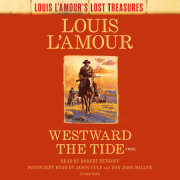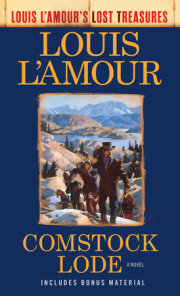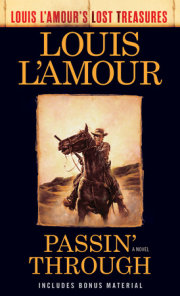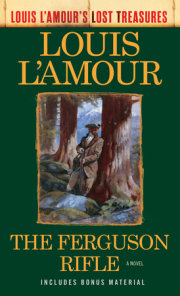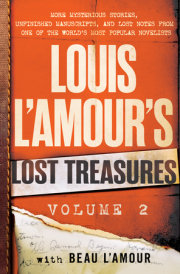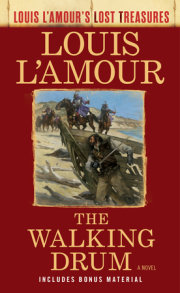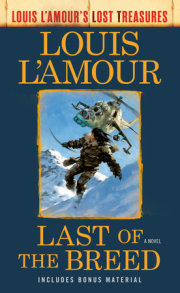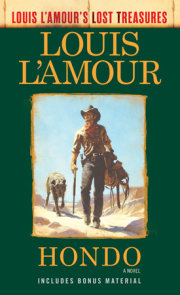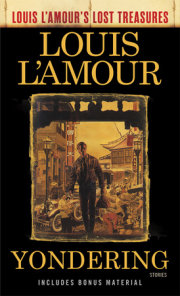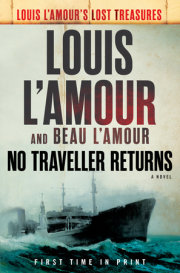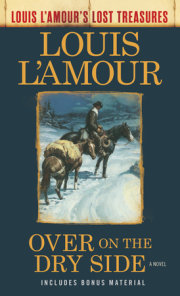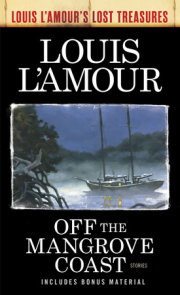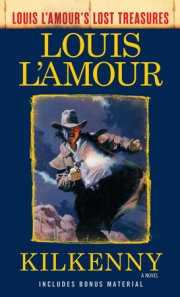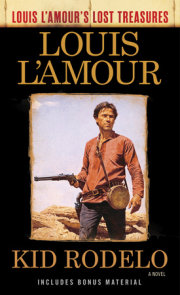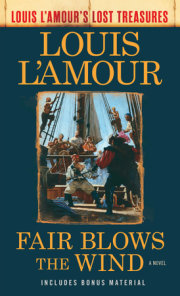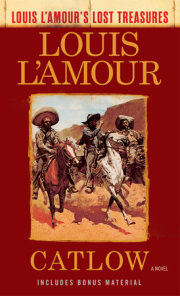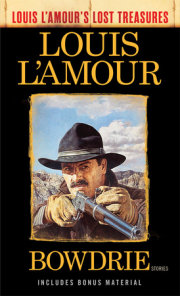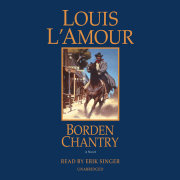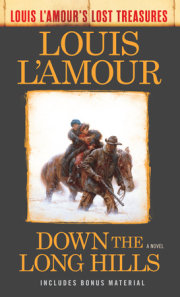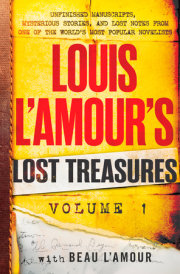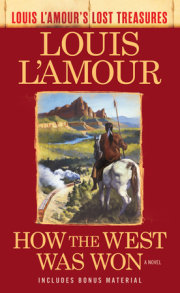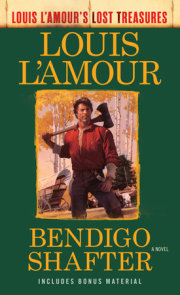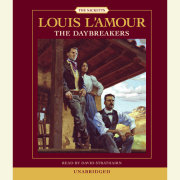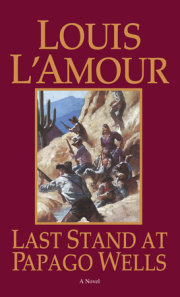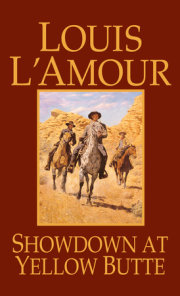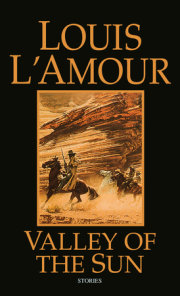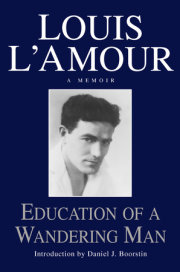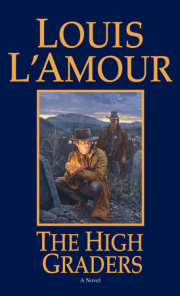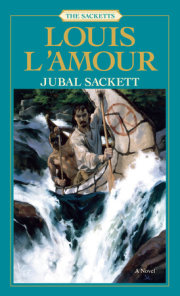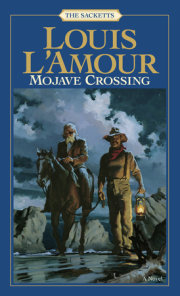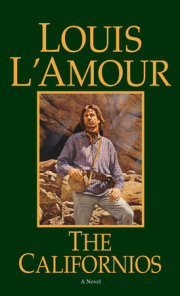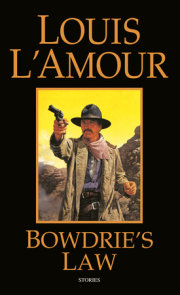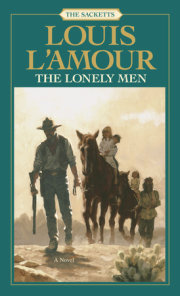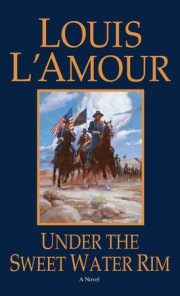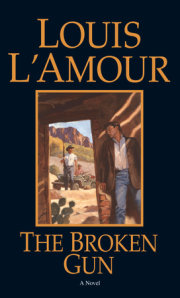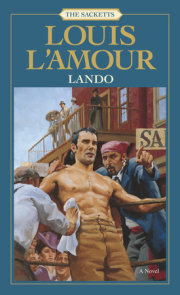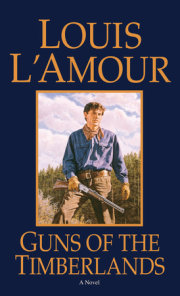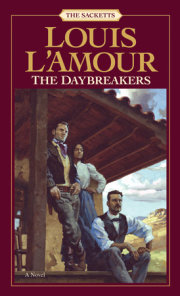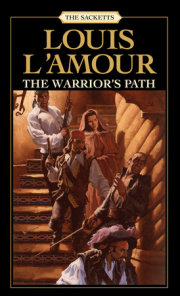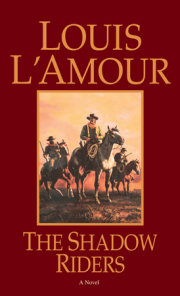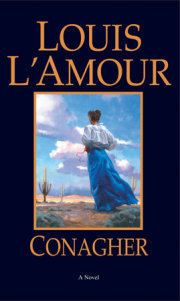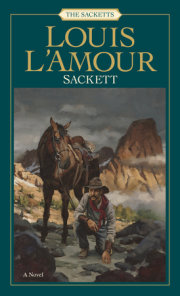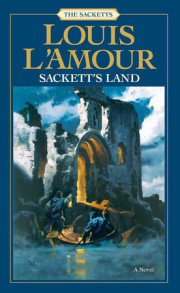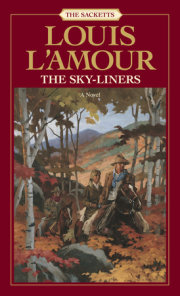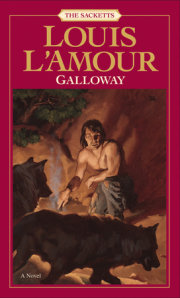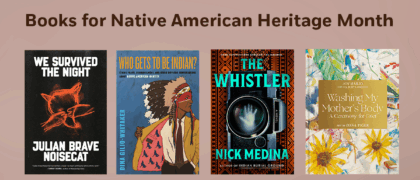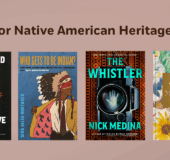Beyond the Chaparral
JIM ROSSITER LOOKED up as the boy came into the room. He smiled, a half-nostalgic smile, for this boy reminded him of himself…fifteen, no…twenty years ago.
“What is it, Mike?”
The boy’s eyes were worried. He hesitated, not wanting to tell what he had to tell, yet knowing with his boyish wisdom that it was better for Rossiter to hear it from him, now.
“Lonnie Parker’s back from prison.”
Jim Rossiter did not move for a long, long minute. “I see,” he said. “Thanks, Mike.”
When the boy had gone he got to his feet and walked to the window, watching Mike cross the street. It was not easy to grow up in a western town when one wanted the things Mike Hamlin wanted.
Mike Hamlin did not want to punch cows, to drive a freight wagon or a stage. He did not want to own a ranch or even be the town marshal. Mike was a dreamer, a thinker, a reader. He might be a young Shelley, a potential Calhoun. He was a boy born to thought, and that in a community where all the premiums were paid to action.
Jim Rossiter knew how it was with Mike, for Jim had been through it, too. He had fought this same battle, and had, after a fashion, won.
He had punched cows, all right. And for awhile he had driven a freight wagon. For a time he had been marshal of a trail town, but always with a book in his pocket. First it had been Plutarch—how many times had he read it? Then Plato, Thucydides, Shakespeare, and Shelley. The books had been given to him by a drunken remittance man, and he had passed them along to Mike. A drunken Englishman and Jim Rossiter, bearers of the torch. He smiled wryly at the thought.
But he had won.…He had gone east, had become a lawyer, had practiced there. However, memories of the land he left behind were always with him, the wide vistas, the battlements of the mesas, the vast towers of lonely cloud, the fringing pines…and the desert that gave so richly of its colors and its spaces.
So he had come back.
A scholar and a thinker in a land of action. A dreamer in a place of violence. He had returned because he loved the land. He stayed because he loved Magda Lane. That love, he had found, was one of the few things that gave his life any meaning.
And now Lonnie Parker was back.
Lonnie, who had given so much to Magda when she needed it, so much of gaiety and laughter. Lonnie Parker, who rode like a devil and fought like a madman. Lonnie, who could dance and laugh and be gay, and who was weak—that was Magda’s word.
Rossiter, who was wise in the ways of women, knew that weakness had its appeal. There was a penalty for seeming strong, for those whose pride made it necessary to carry on as best they could although often lonely or unhappy. No one realized—few would take the time to look closely enough. The weak needed help…the strong? They needed nothing.
Sometimes it seemed the price of strength was loneliness and unhappiness…and the rewards for weakness were love, tenderness, and compassion.
Now Jim Rossiter stared down the dusty street, saw the bleak faces of the old buildings, lined with the wind etchings of years, saw the far plains and hills beyond, and knew the depths of all that loneliness.
Now that Lonnie was back it would spell the end of everything for him. Yet in a sense it would be a relief. Now the threat was over, the suspense would be gone.
He had never known Lonnie Parker. But he had heard of him. “Lonnie?” they would say, smiling a little. “There’s no harm in him. Careless, maybe, but he doesn’t mean anything by it.”
Rossiter looked around the bare country law office. Three years, and he had come to love it, this quiet place, often too quiet, where he practiced law. He walked back to his desk and sat down. He was supposed to call tonight…should he?
Lonnie was back, and Magda had once told him herself, “I’m not sure, Jim. Perhaps I love him. I…I don’t know. I was so alone then, and he understood and he needed me. Maybe that was all it was, but I just don’t know.”
Jim Rossiter was a tall, quiet man with wide shoulders and narrow hips. He liked people, and he made friends. Returning to the West he had come to this town where he was not known, and had brought a new kind of law with him.
In the past, the law had been an instrument of the big cattleman. The small men could not afford to hire the sort of lawyers who could fight their cases against the big money. Jim Rossiter had taken their cases, and they had paid him, sometimes with cash, sometimes with cattle, sometimes with promises. Occasionally, he lost. More often, he won.
Soon he had cattle of his own, and he ran them on Tom Frisby’s place, Frisby being one of the men for whom he had won a case.
Rossiter made enemies, but he also made friends. He rode miles to talk to newcomers; he even took cases out of the county. He was a good listener and his replies were always honest. There had been a mention of him for the legislature when the territory became a state.
He had seen Magda Lane the morning he arrived, and the sight of her had stopped him in the middle of the street.
She had been crossing toward him, a quiet, lovely girl with dark hair and gray-green eyes. She had looked up and seen him there, a tall, young man in a gray suit and black hat. Their eyes met, and Jim Rossiter looked quickly away, then walked on, his mouth dry, his heart pounding.
Even in that small town it was three weeks before they met. Rossiter saw her box handed to a younger girl to smuggle in to the box supper, and had detected the colors of the wrappings. He spent his last four dollars bidding on it, but he won.
They had talked then, and somehow he had found himself telling her of his boyhood, his ambitions, and why he had returned to the West.
Almost a month passed before she told him of Lonnie. It came about easily, a passing mention. Yet he had heard the story before. According to some, Lonnie had held up a stage in a moment of boyish excitement.
“But he didn’t mean anything by it,” she told him. “He isn’t a bad boy.”
Later, he was shocked when he discovered that Lonnie had been twenty-seven when he was sent to prison.
But others seemed to agree. Wild, yes…but not bad. Not Lonnie. Had a few drinks, maybe, they said. He’d spent most of the money in a poker game.
Only Frisby added a dissenting note. “Maybe he ain’t bad,” he said testily, “but I had money on that stage. Cost me a season’s work so’s he could set in that game with George Sprague.”
The stolen money, Rossiter learned, had been taken in charge by the stage driver to buy dress goods, household items, and other odds and ends for a dozen of the squatters around Gentry. A boyish prank, some said, but it had cost the losers the few little things they needed most, the things they had saved many nickels and dimes to buy.
Yet, on the evenings when he visited Magda, he thought not at all of Lonnie. He was far away and Magda was here right now. They walked together, rode together. She was a widow—her husband had been killed by Indians after a marriage of only weeks. At a trying time in her life, Lonnie had come along and he had been helpful, considerate.
Now Lonnie was back, and he, Jim Rossiter was to visit Magda that evening.
Copyright © 2005 by Louis L'Amour. All rights reserved. No part of this excerpt may be reproduced or reprinted without permission in writing from the publisher.

